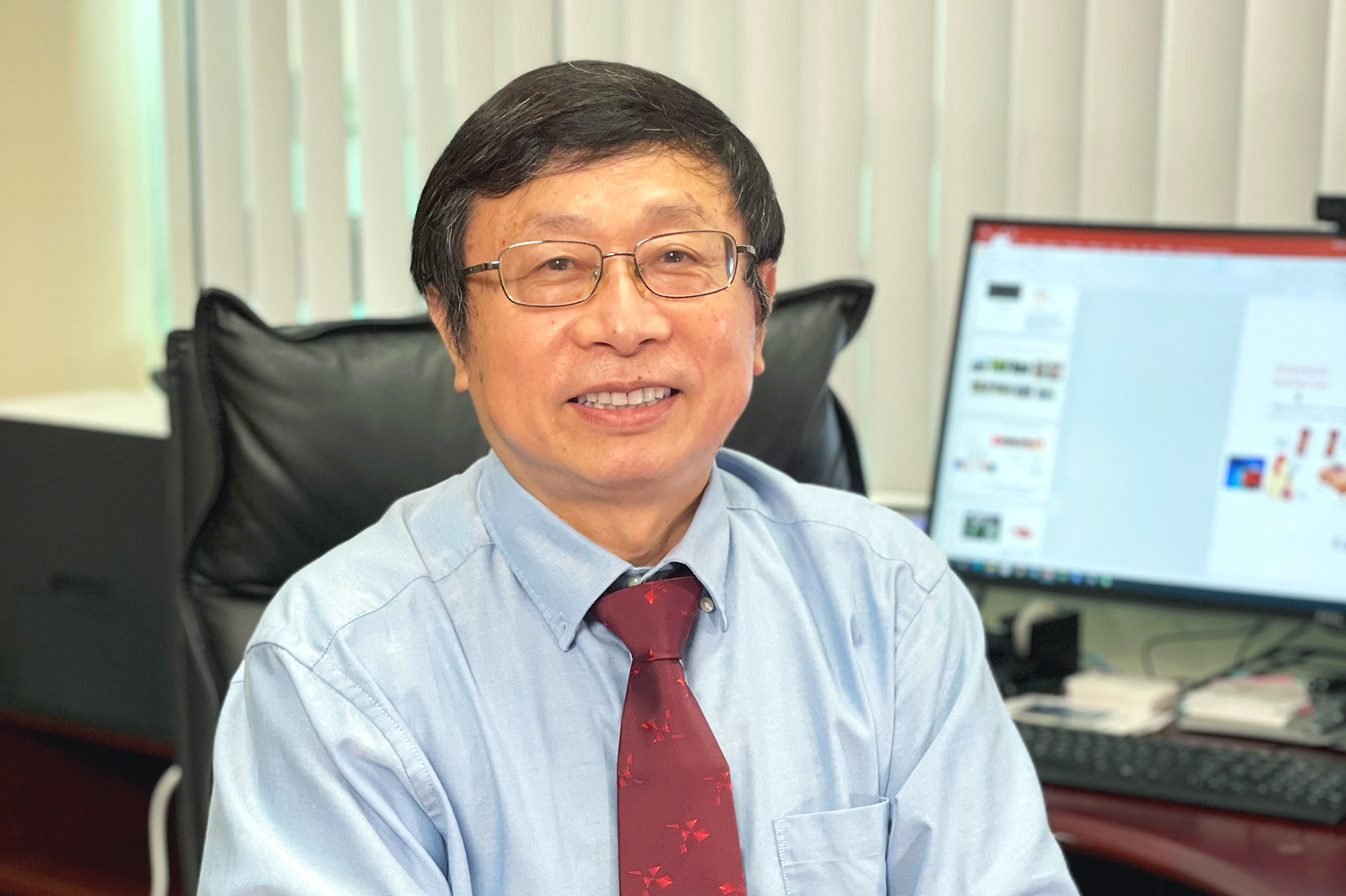Maintaining healthy vascular endothelial cells

The key takeaway from the recent talk by a leading vascular biologist at City University of Hong Kong (CityU) was something we could easily relate to: keep your blood vessels healthy.
Cardiovascular disease (CVD) is the leading cause of death worldwide, taking more than 18 million lives each year, according to Professor Huang Yu, Head of the Department of Biomedical Sciences and the Jeanie Hu Professor of Biomedical Sciences at CityU.
Speaking on 2 November at the latest talk in the President’s Lecture Series, Professor Huang discussed novel mechanisms that cause endothelial cell dysfunction in the presence of cardiovascular risk factors, such as hypertension, diabetes, abnormal lipids or obesity as well as the development of new venues for the prediction, prevention and treatment of CVD.
Endothelial cells line the lumen of blood vessels and have unique metabolic and synthetic functions. Nitric oxide (NO) produced in these cells protects your cardiovascular health by preventing hypertension, heart attack, and stroke.
“Endothelial cells play a key role in maintaining cardiovascular health,” said Professor Huang, an RGC-Senior Research Fellow, Fellow of the International Society for Heart Research, and Associate Editor of the American Heart Association’s Circulation Research journal.
In the past, the role of endothelial cells was unclear except for serving as a physical barrier. But later research revealed that these cells control blood vessel function and regulate blood pressure. Any form of problem with these cells could have detrimental consequences on our health.
Endothelial dysfunction can lead to a range of medical problems from stroke, Alzheimer’s disease to sleep apnea, hypertension and heart failure.
“The deranged performance of endothelial cells sets in motion a cascade of events in the vessel wall that may ultimately evolve into the narrowing and hardening of arteries and subsequent reduction in or occlusion of blood flow,” he said.
To boost NO in the human body, and thereby try to reverse endothelial dysfunction, Professor Huang recommends exercise since physical activity improves endothelial function and increases NO bioavailability. He also urged participants at the talk to pay greater attention to one’s diet such as consuming more tea, cranberry juice, red grape, and dark chocolate.
Atherosclerosis, or clogged arteries, is a particularly worrying disease, Professor Huang said, and one that he wished to tackle head-on.
“The development of drugs that can target specific disease pathways and sensitive diagnostic tools for an early stage of atherosclerotic vascular disease will have a major impact on survival and quality of life,” he said.